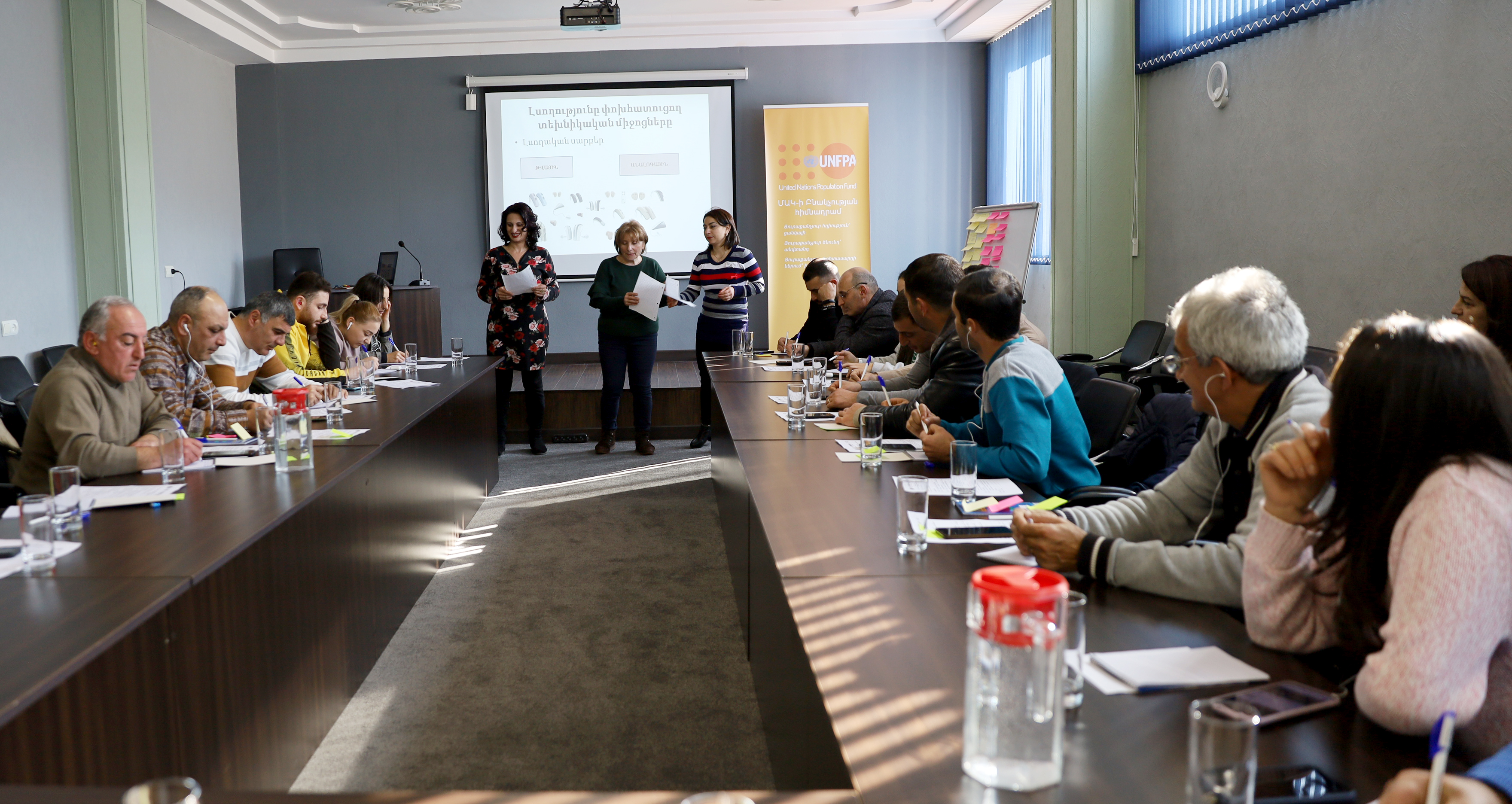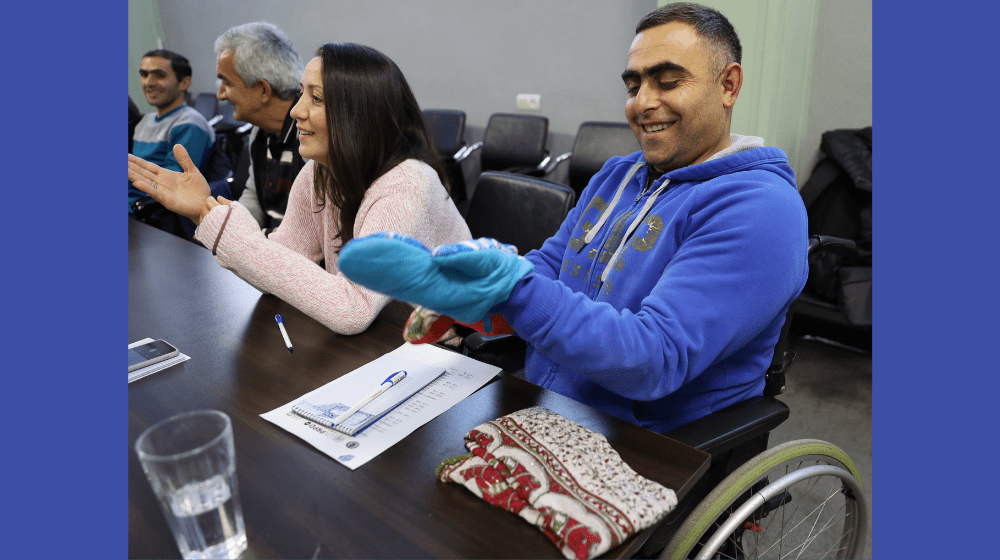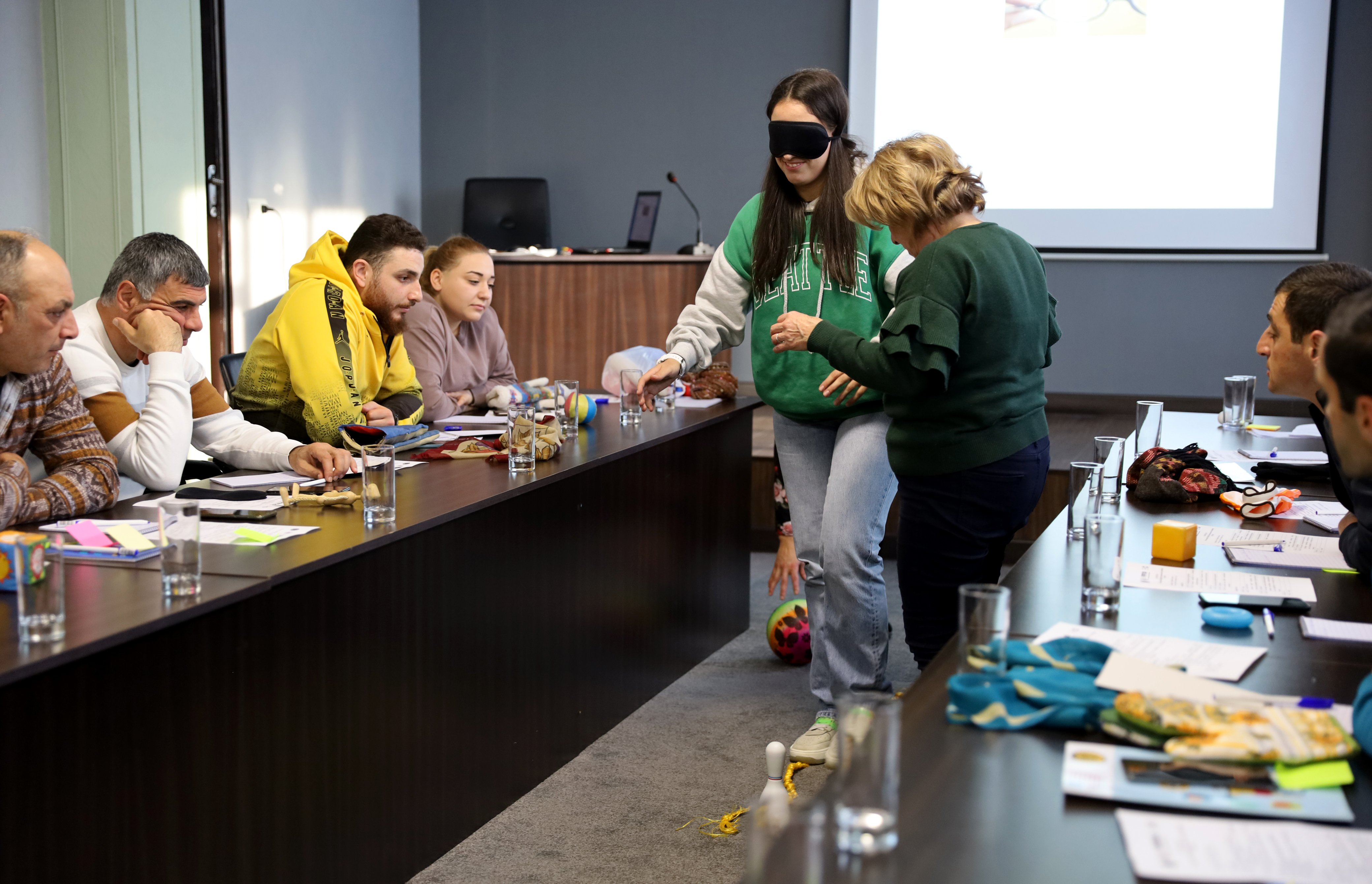
"Often we refer the question to the person who is accompanying the person in a wheelchair, while the addressee is a person with a disability, and he/she can also fully answer your question. I also once did the same thing," confessed Lyova Tumanyan admitting that his attitude towards people with disabilities has drastically changed after this meeting, "I have never had an opportunity to talk directly with people with disabilities. Many of us have various stereotypes but during these two days I met many people with disabilities that are full of life and my thinking, behavior, attitude radically changed."
Lyova Tumanyan conducts classes at Spitak community school for four years as a physical education teacher and noted that though he had no experience working with people with disabilities, but "I have students, who have bad eyesight, and after this training course, my attitude, approach working with these children changed a lot,” says Mr. Tumanyan.
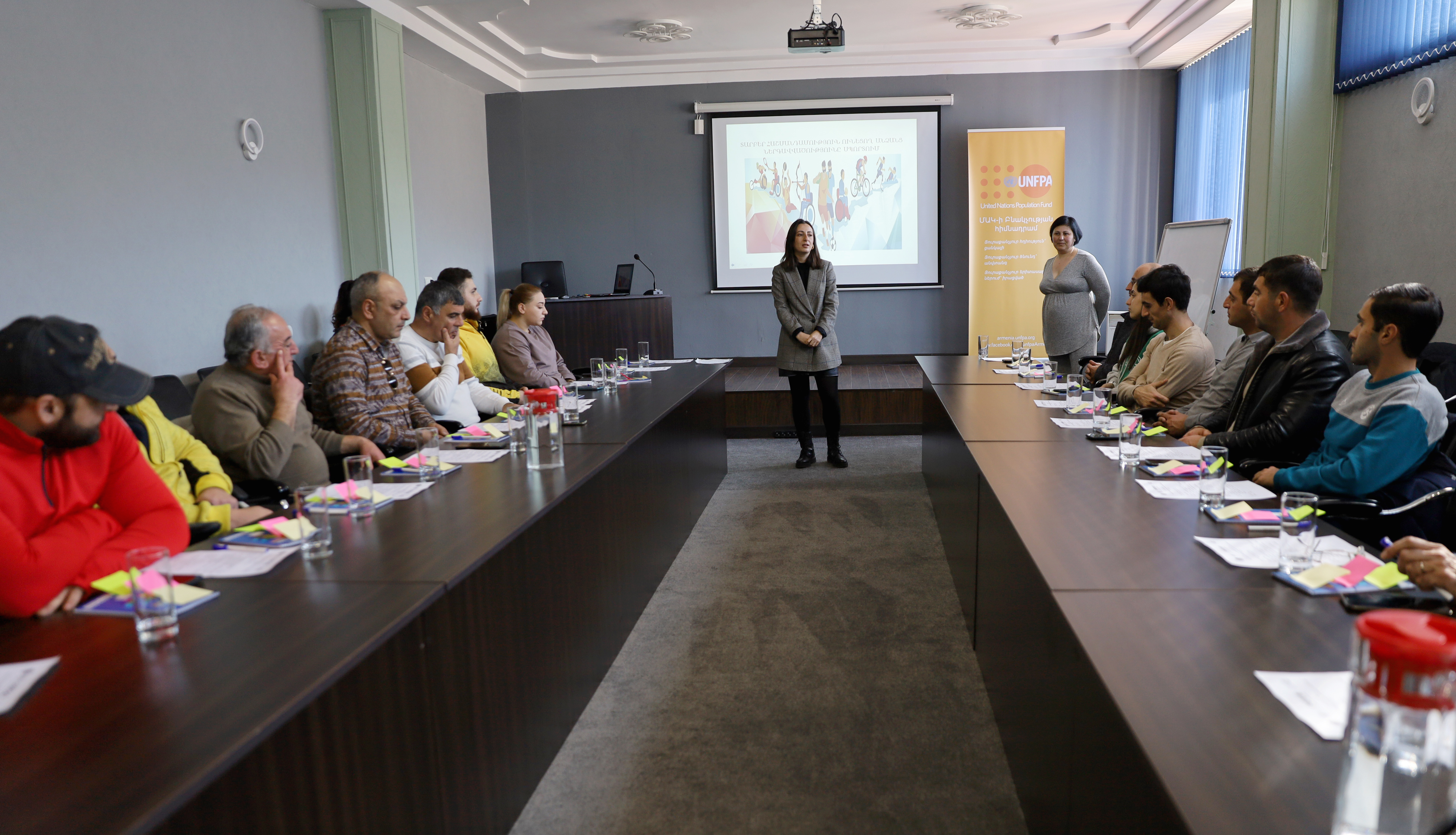
On November 23-24, the Vanadzor hosted coaches, teachers and sportsmen jointly to discuss the peculiarities of parasports and the required joint steps that should be taken in order to make the parasport more accessible and popular.
The two days training course for the Parasport coaches was initiated by UNFPA in partnership with the “Lusastgh” NGO and with the financial support of The United Nations Partnership on the Rights of Persons with Disabilities (UNPRPD) Multi Partner Trust Fund (MPTF).
Anna Barfyan, the UNFPA Youth Programme Analyst, noted that the training course idea was formed last year, “When the Vanadzor and Yerevan wheelchair basketball clubs were being formed, through the discussions with the coaches we were trying to assess, identify the main gaps and needs in Para-sport among which are the knowledge and skills gaps to work with sportsmen that have disability, " says Anna Barfyan.
Coaches, lecturers, sportsmen, around 20 people from Vanadzor, Stepanavan, Gyumri, Sevan, Abovyan and Yerevan passed the training course.
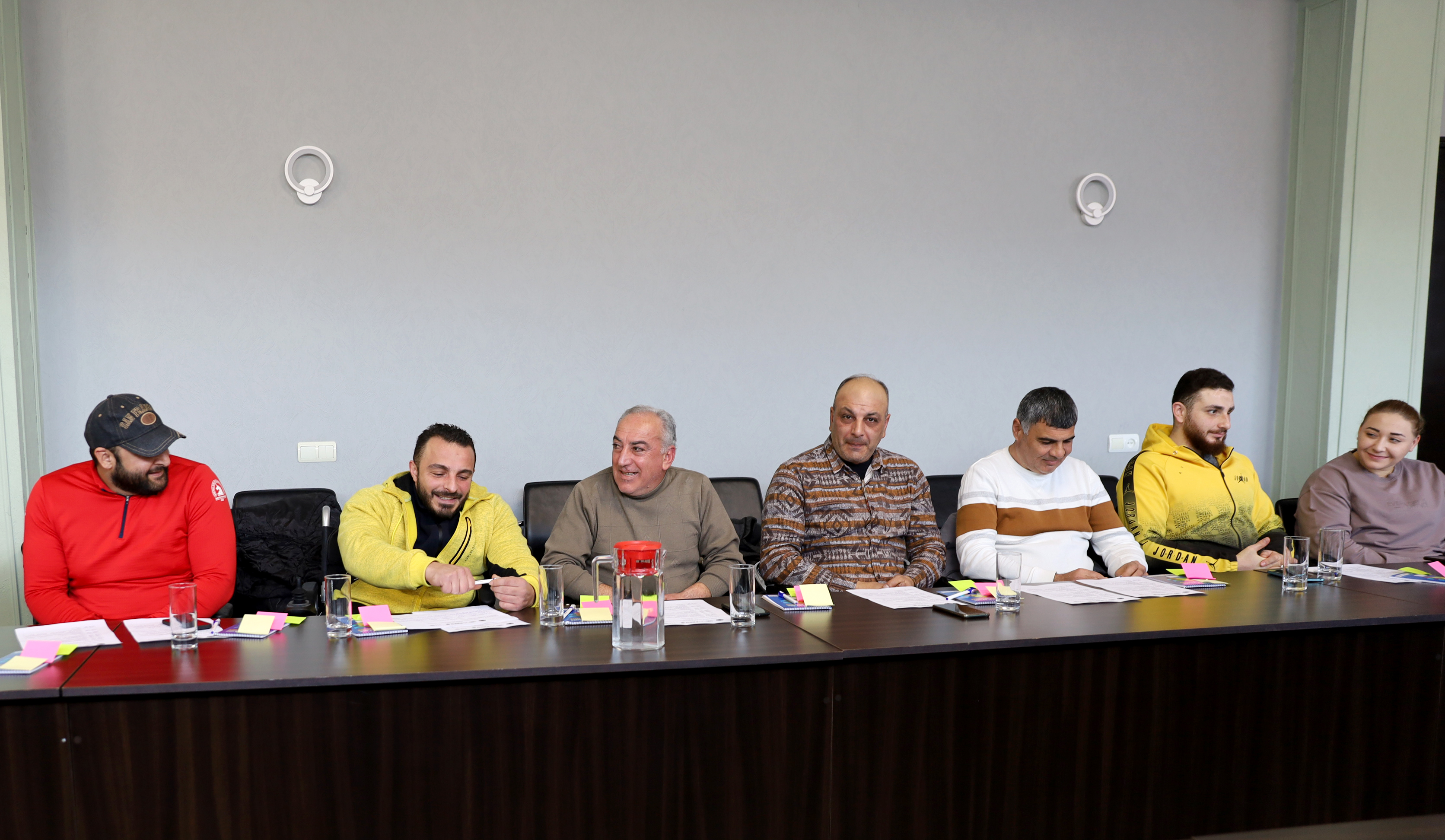
The executive director of the Wheelchair Basketball Federation of Armenia, a coach Harutyun Yesayan, highlighted three main issues in Para-sport:
"Firstly, there is a lack of skills, knowledge in working with people with disabilities, in conducting sport classes in a more focused and effective way. Taking into account that there are various types of disability, a special approach should be taken while working with each sportsman," said Mr. Yesayan, also raising issues regarding the sport equipment and inclusive sports schools.
"The basic things are even a problem, for example, the entrance to the sports hall, the changing-room, an accessible bathroom... The same issues are in the sports halls; if the floor is not flat enough, the sportsman cannot drive a wheelchair properly... also there is a need for good sports equipment, the quality of the wheelchair also affects the game..."
Harutyun Yesayan highlights also the social side of the issue that has its direct negative impact and banned the popularization of the sport.
"For example, how can a sportsman get to the sports classes if the school is located at the other end of the city? There is almost no accessible public transport, even if they can afford money for a taxi, not every driver is willing to provide the service....", - adds Mr. Yesayan stressing the need for such training courses and for future recommending also to involve those coaches, that can share their positive experience working with sportsmen with disabilities, and present the details of the conducted work to the trainers that are new in the field.
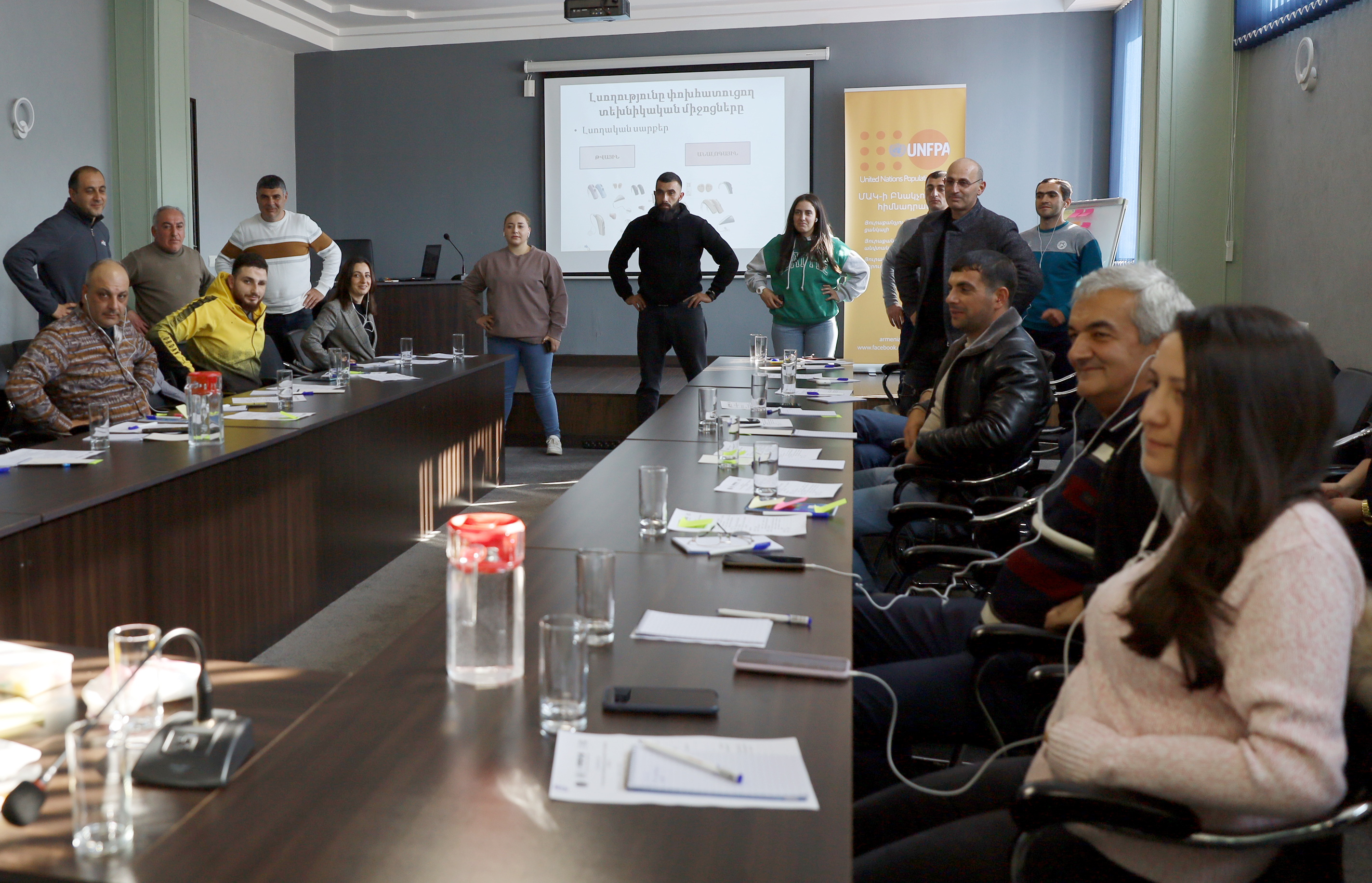
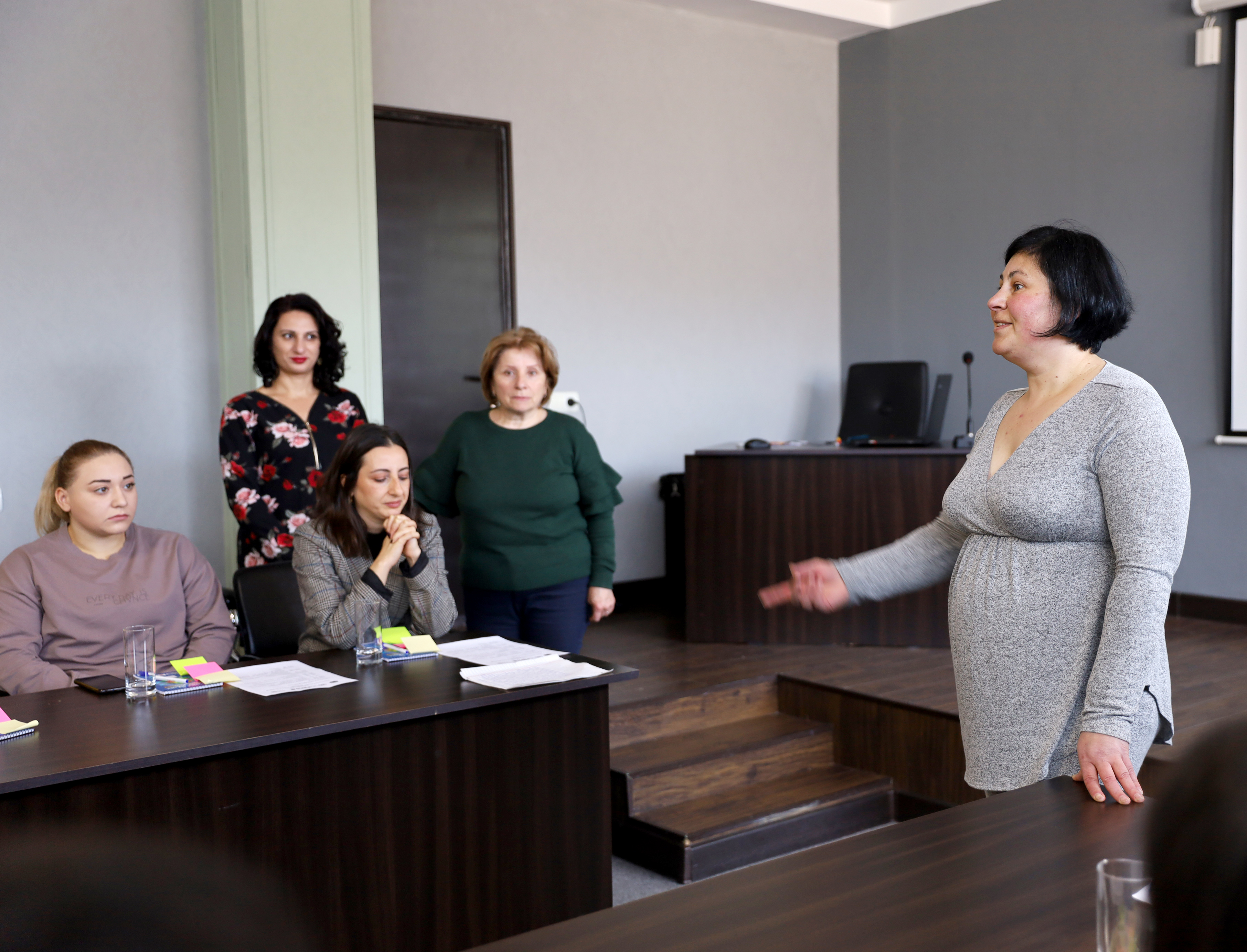
Representatives of the medical institutions also participated in the retraining. Lilit Martirosyan works in the rehabilitation department of the Gugark community medical center as an ecotherapist.
"Each disability has its own peculiarities to work with, and we, as doctors, share our experience with the coaches, and on the other hand, they speak up about their problems. Together we try to find the best methods, solutions that will allow us to provide the best service," said Ms. Martirosyan.
"Here we find a solution that is acceptable for all sides relying on the experience of coaches and doctors and first of all taking into account the best interests of the child, in order to help more children with disabilities be involved in sports," adds Verine Abrahamyan, a therapist from the Reproductive department of Gugark community medical center.
